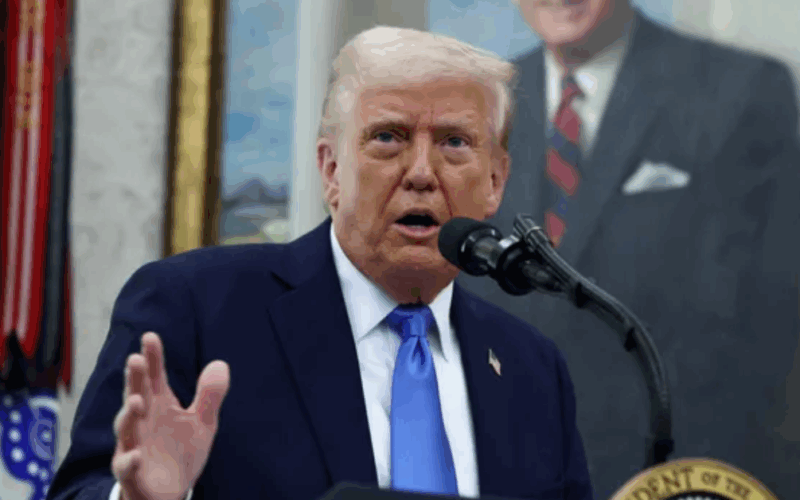Making the declaration late Saturday night on his social media platform Truth Social, Trump emphasized the need for strict voter identification and limited mail-in ballots. This marks a continued push by the former president to reshape election policies through executive means, despite legal setbacks in the past.
Trump’s Executive Order and Election Reform Plans
In his recent post, Trump stated:
“Voter I.D. Must Be Part of Every Single Vote. NO EXCEPTIONS! I Will Be Doing An Executive Order To That End!!! Also, No Mail-In Voting, Except For Those That Are Very Ill, And The Far Away Military. USE PAPER BALLOTS ONLY!”
This announcement follows an earlier attempt earlier this year when Trump sought to impose voter ID mandates as part of a broader election integrity plan. However, parts of that original executive order were struck down by a federal judge.
Legal Challenges to Executive-Imposed Voter ID
In April, Judge Colleen Kollar-Kotelly of the U.S. District Court for the District of Columbia invalidated sections of Trump’s order that dealt with voter ID requirements. She ruled that the President does not have constitutional authority to regulate elections by executive order because election regulation power lies with Congress and individual states.
The judge wrote:
“No statutory delegation of authority to the Executive Branch permits the President to short-circuit Congress’s deliberative process by executive order.”
This decision highlighted ongoing congressional debates surrounding election laws and reforms.
Public Support for Voter ID and Proof of Citizenship
Despite legal hurdles, voter ID requirements enjoy widespread public approval. A Gallup poll conducted shortly before the 2024 elections revealed that:
- 84% of U.S. adults support requiring voters to provide identification when voting.
- 83% back the idea of proof of citizenship when initially registering to vote.
- Support crosses party lines: 67% of Democrats, 84% of Independents, and an overwhelming 98% of Republicans endorse mandatory voter ID.
The strong bipartisan support reflects the ongoing national conversation about election security and integrity ahead of upcoming elections.
Looking Ahead: The Future of Election Integrity Policy
As President Trump signals renewed executive action, the battle over the scope of federal authority in election regulation intensifies. With Congress actively debating election reform legislation, any executive orders face potential challenges both legally and politically.
Election policies may see significant shifts depending on judicial rulings and legislative outcomes in the near term. The national discourse surrounding voter ID laws, mail-in voting, and ballot types will likely continue to shape American electoral processes.
Key points to remember:
- Trump emphasizes mandatory voter ID and limits on mail-in voting via executive order.
- Previous executive attempts were blocked by federal court citing constitutional powers.
- Strong public support exists for voter ID and citizenship proof requirements.
- Congressional debates and judicial reviews will influence the outcome of election reform efforts.




